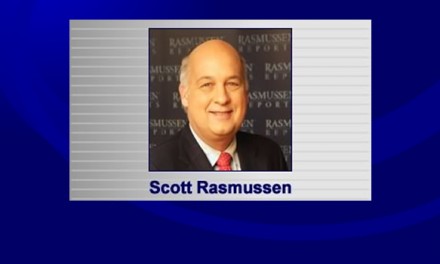You can tell when the PolitiFact website is going to negotiate around the facts. On May 7, their top headline on the home page asked: “Are ‘outside agitators’ co-opting campus protests?”
This isn’t quite the right question. The media have presented these events as “student” protests, so if half the participants aren’t college students, how would they describe the nonstudents? PolitiFact writers Kwasi Gyamfi Asiedu and Loreben Turquero offered this summary:
“– Police, city and university officials nationwide have blamed ‘outside agitators’ for campus protests but have provided little evidence for their claims.
— Law enforcement experts say police often consider ‘outside agitators’ to be people who move from city to city and are paid to be agitators.
— Historians say government and law officials commonly use the ‘outside agitator’ narrative to delegitimize protesters and their demands.
First, the “little evidence” is a weird claim, when PolitiFact’s article acknowledges facts like the New York Police Department reported that “32 out of 112 people arrested at Columbia’s private campus were unaffiliated with the university. At nearby City College, 102 out of 170 people arrested were not students.” Add it up, and 134 out of 282 protesters were not students. So when Mayor Eric Adams complains about “outside agitators,” he’s not in need of a “fact check.” They even scolded leftist Reps. Ayanna Pressley (D-Mass.) and Hank Johnson (D-Ga.) over their “agitator” concerns.
They did not mention the recent story of an outside agitator named James Carlson, who was part of the army who briefly occupied Hamilton Hall at Columbia University. He’s a 40-year-old trust fund heir who owns a townhouse in Brooklyn worth $3.4 million.
PolitiFact typically seeks out “experts” to match the narratives it wants to underline. They don’t like people suggesting these protesters aren’t local and they might be paid to protest. They found William & Mary law professor Timothy Zick to define the outside agitator spin: “It was used as sort of a phrase that would link protesters, no matter how peaceful they were, to Communists and other infiltrators who were causing disruption.” The term is used to cast doubt on protester “sincerity.”
Angus Johnson, “historian of student activism” at Hostos Community College in New York, explained, “The idea behind the concept of the outside agitator is that dissent can never be coming from the people who are expressing that dissent.” They also turned to Johnston to underline, “Some experts have been quick to note the main goal of a protest is to get others to join in.”
This spin is nothing like how the media spun the Tea Party protests against Obamacare legislation. They sought to discredit them as donor-funded “AstroTurf” (not grassroots). They went looking for the most racist or ignorant-sounding sign they could find to present protesters as a kooky “fringe” movement. NBC’s Chuck Todd decried “town hall madness.” The front page of The Boston Globe lamented the “quarrelsome masses hollering questions downloaded from activist websites.”
MSNBC’s Keith Olbermann ranted, “The truth is out about the societal sabotage dressed up as phony protests against health care reform. … When Hamas does it or Hezbollah does it, it is called terrorism.” That looks pretty funny right now, since these protesters are a much better match for that Hamas spin. All of this was about “delegitimizing protesters and their demands.”
Protests are covered in wildly divergent ways, depending on whether the activists are on the Left or the Right. This is just as true for liberal “fact-checking” organizations as it is for liberal media outlets.
Tim Graham is director of media analysis at the Media Research Center and executive editor of the blog NewsBusters.org. To find out more about Tim Graham and read features by other Creators Syndicate writers and cartoonists, visit the Creators Syndicate website at www.creators.com.
COPYRIGHT 2024 CREATORS.COM



















Plitifact wouldn’t KNOW FACTS< if they got their nads bit off by them.